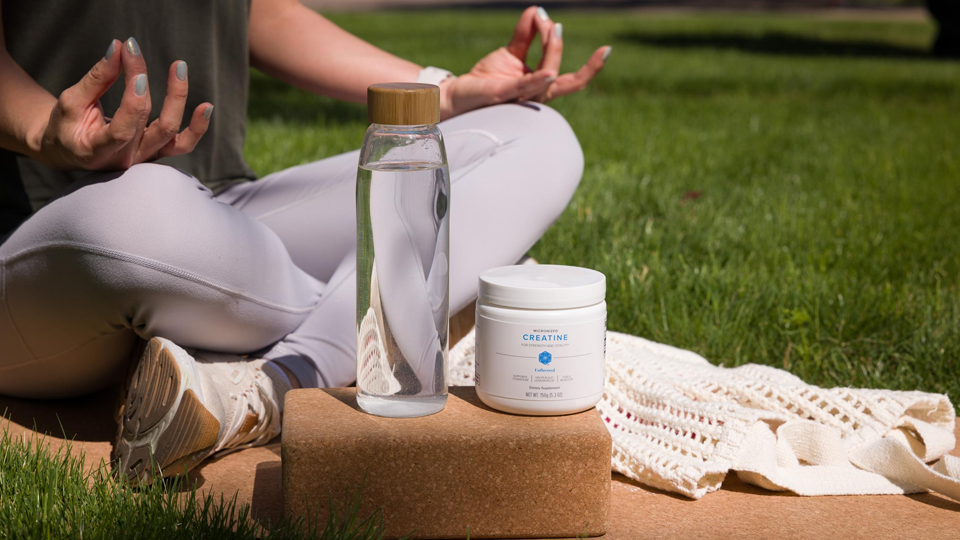If you’re a runner limiting your protein intake, you may be limiting your performance. A high-protein diet isn’t just for athletes who lift weights.
The Importance of Exercise Stress
The goal for the majority of runners is to improve running performance, whether by total distance or by time. During the recovery phase after a run, consuming the right nutrients is necessary for quicker recovery and performance gains.
A well-planned training program can help you improve performance, help you resist fatigue, and speed your recovery. After repeated runs, you continually reach new levels of fatigue and stress inflicted on your body followed by recovery. This exercise stress is potentially good long-term, but it does have an acute and negative impact on muscle.
Those intense runs affect your body in ways that require more nutrients. You deplete fuel stores of fat and carbohydrates in muscle. You create metabolic waste products that your body must then remove. You break down muscle tissue that your body then needs to rebuild and grow afterward as part of recovery.
Your greater need for nutrients is clear. You need carbohydrates and fats to help restore your fuel supplies. But you also need protein to help rebuild muscle tissue in time for the next run. In fact, you need a lot of it.
Runner’s Protein Needs
Depending on how intense your runs are, your protein requirements might range from 1.2 grams per kilogram to 2 grams per kilogram (1-3).
You also should get protein soon after training to make sure your body’s delivering its nutrition directly where it’s needed.
When protein is ingested, it’s broken down to its smallest units of amino acids. These amino acids are then absorbed into the body and transported to muscles. In muscle these amino acids form the building blocks for new proteins.
But there’s a difference in how the body responds to running versus weightlifting after training.
Response to Protein After Running
After lifting weights, amino acids are used mainly to rebuild muscle protein that, when added up, leads to greater muscle mass. It’s because weight training causes various molecular changes in the muscle that will direct amino acids toward building bigger muscles. But running sends large “stress signals” that can actually block the muscle building; instead these signals activate different processes that direct amino acids to make different proteins.
After running, the amino acids are used instead to build contractile proteins. These proteins are preferential and are called mitochondrial proteins. They lead to greater production of mitochondria that surround contractile proteins and serve as the “power plants” of muscle cells to create energy.
You need mitochondria in your muscles. Your mitochondria are the spots of carbohydrate and fat breakdown. They provide energy for muscle. In fact, endurance athletes have many more of these mitochondrial proteins than weight-trained athletes.
Protein in your diet, especially when taken immediately after a long run, is most likely used to optimize mitochondrial processes.
How to Optimize Your Mitochondria
After intense runs, runners should make sure to have at least 20 grams of high-quality protein at regular intervals every three to four hours. Some studies have reported that getting 50 to 100 grams of protein over the next 12 to 24 hours could even accelerate recovery (1).
Your protein source should be from a high-quality source. There are many different types of protein that qualify, but whey protein is often lauded in the scientific literature for being easily digested and having a higher concentration of the muscle protein synthesis-stimulating amino acid leucine in comparison to other types of protein (2-3).
Some studies have also shown that carbohydrate ingestion with the protein will not only help recovery by restoring carbohydrate stores, but also help in building new proteins (1, 4).
Special Runner’s Sweet Potato Pie Shake Recipe
A great post-run shake using Isagenix products combines whey protein with the nutrient-packed sweet potato. You can adjust carbohydrate levels as needed, but the recipe below should cover you for a 60-minute run.
- 1 serving IsaLean® Shake or IsaLean PRO Shake
- 4 – 6 oz pre-cooked sweet potato
- 1 tsp cinnamon
- 12 oz cold, purified water
Reference
- Position of the Academy of Nutrition and Dietetics, Dietitians of Canada, and the American College of Sports Medicine: Nutrition and Athletic Performance.
- Phillips SM, Van Loon LJ. Dietary protein for athletes: From requirements to optimum adaptation. J Sports Sci. 2011;29(suppl):S29-S38.
- Phillips SM. Dietary protein requirements and adaptive advantages in athletes Br J Nutr. 2012;108(suppl 2):S158-S167
- Beelen M, Koopman R, Gijsen AP, et al. Protein coingestion stimulates muscle protein synthesis during resistance-type exercise. Am J Physiol Endocrinol Metab. 2008;295(1):E70-E77.





